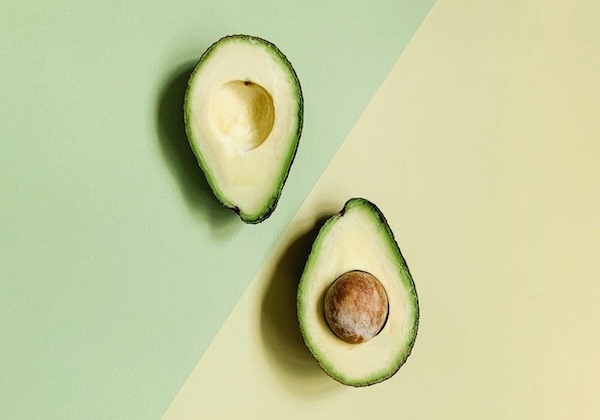
As we near the end of Alzheimer’s and Brain Awareness Month, we want to leave you with more practical tips about food you can start eating now to boost your brain power! If you read our other articles about food, then you know how often we stress the importance of getting the right nutrients.
Besides our physical health, food plays a crucial role in maintaining and improving our brain health. A healthy and nutritious diet can really boost cognitive functions, improve memory, and even reduce the risk of neurodegenerative diseases like Alzheimer’s and dementia. On the contrary, there are many foods out there that can do the opposite and cause cognitive declines in the long run. We call these “brain-killer” foods.
In this article, you’ll learn more about the types of food that are beneficial and harmful to your brain. Without further ado, here are the top 12 foods that can help boost your brain power and protect your cognitive health!
Read our article on which foods you can eat to help you sleep better.
Read our article on simple exercises to sharpen your brain.
What are the biggest brain-killer foods?
Have you ever felt super tired and lethargic and found it hard to focus on a task after eating junk food like chips or overeating sweets like candy or chocolate cake? You’re not alone. This is because high sugar intake, refined carbohydrates, foods high in trans fats, excessively salty foods, and processed meats can negatively impact our brain function. It affects the way we think, focus, and process information, not to mention the physiological distress on our bodies.
High sugar intake is linked to inflammation, oxidative stress, and poor insulin regulation, all of which can adversely affect brain function. Studies have shown that diets high in sugar can lead to impaired memory and reduced brain volume, particularly in areas of the brain that govern short-term memory.
A high intake of salt can lead to an increased risk of cognitive decline. Foods with too much salt can cause hypertension, which is a risk factor for cognitive impairments and vascular dementia.
Eating too much fried and processed foods can cause our brains to shrink and decrease cognitive function. Research has shown that trans fats found in processed foods could lead to a decline in memory retention and lower brain volume.
Processed meats that are high in nitrates and nitrites can affect brain health by contributing to the process of neurodegeneration and exacerbating conditions like Alzheimer’s disease.
This one is a no-brainer… excessive alcohol consumption can severely harm your brain. Chronic alcohol use can reduce brain volumes and is associated with persistent issues in learning and memory, as well as disruptions in neurotransmitter systems.
Now that we’ve established some of the “brain-killer” foods, let’s get to the bright side and highlight some great brain foods that you can start eating today!
Fatty Fish
If you’re a salmon lover, then this one’s for you!
Fatty fish like salmon, bluefin tuna, whitefish, mackerel, and striped bass are rich in omega-3 fatty acids (DHA and EPA), all of which are super beneficial for our brain health. Omega-3s help build membranes around the cells in our body, including brain cells. In essence, omega-3s improve the structure of our neurons. Eating fatty fish a few times a week can significantly improve learning and memory as well as slow cognitive decline. It may also reduce the risk of Alzheimer’s disease.
Blueberries
Blueberries are extremely rich in antioxidants and anti-inflammatory properties. They contain flavonoids, a plant compound that can improve memory, learning, and other cognitive functions. The antioxidants in blueberries help combat oxidative stress and inflammation as well as conditions that cause brain aging and decline. Blueberries can also delay short-term memory loss and have proven to improve communication between our brain cells!
Turmeric
Turmeric is known for boosting levels of BDNF (brain-derived neurotrophic factor), a brain hormone that increases the growth of new neurons and fights various degenerative processes in the brain. Turmeric contains curcumin, an active ingredient with potent anti-inflammatory and antioxidant benefits. Consuming turmeric can lead to lowering the risk of brain disease and improving memory and learning.
Broccoli
High in antioxidants and vitamin K, broccoli contributes to better cognitive function and enhances protection against brain damage. Glucosinolates, the compound in broccoli, when broken down, can reduce oxidative stress and also lower the risk of brain decline. Like many green vegetables, broccoli is rich in compounds that give strong anti-inflammatory effects and can contribute to overall improved brain health, especially when consumed regularly.
Dark Chocolate
Like blueberries, dark chocolate (specifically!) contains flavonoids and antioxidants. Brain benefits of dark chocolate include improved blood flow to the brain, neuroprotective effects, enhanced mood, improved memory and focus, and improved brain plasticity, a crucial factor in learning. Dark chocolate also contains caffeine, which can give you a little boost throughout the day! So when you’re feeling a little tired in the afternoon, a small piece of dark chocolate should give you the brain boost you need.
Nuts
Nuts are not only a great snack but provide great benefits for our brains! Eating nuts often can improve our cognitive health and prevent the progression of Alzheimer’s disease. Nuts, especially walnuts, have high levels of DHA, which is a type of Omega-3 fatty acid. Various types of nuts are also rich in antioxidants including vitamin E, which protects cells from oxidative stress caused by free radicals. Snacking on nuts also boosts our heart health, which is linked to our brain health.
Eggs
Eggs are a great way to get your daily dose of B vitamins and choline, which are important for our overall brain health. Choline is an essential micronutrient that our body uses to create acetylcholine, which is a neurotransmitter that helps regulate mood and memory. The crucial B vitamins in eggs can slow mental decline in older adults, synthesize brain chemicals, and regulate sugar levels in the brain. All in all, eating eggs can boost memory function and overall mental flexibility!
Green Tea
Green tea contains L-theanine, an amino acid that can cross the blood-brain barrier. This can help reduce anxiety and make you feel more relaxed while maintaining focus. The combination of L-theanine and caffeine can enhance brain function, including stronger working memory. Green tea is also rich in polyphenols and antioxidants that can protect our brain from mental decline and reduce the risk of Alzheimer’s and Parkinson’s. So if you’re ever feeling a little slumped or don’t like the strong effects of caffeine in coffee, opt for green tea as there are significant health benefits!
Whole Grains
Whole grains are known for promoting heart health. But did you know that whole grains are also great for our brain health? The glucose from whole grains provides a steady source of fuel for the brain and can improve concentration and focus due to their ability to provide sustained energy. Rich in fiber, vitamin E, and B vitamins, eating whole grains can help prevent cognitive decline, improve brain function, reduce inflammation of the brain, and preserve memory.
Avocado
So we know that omega fatty acids are essential for cell growth and brain development. Avocado is a great option because it’s filled with omega fatty acids, vitamin E, and monosaturated fat, which reduces high blood pressure. Due to these nutrients, eating avocados can slow the progression of degenerative diseases, such as Alzheimer’s, through its protection, maintenance, and repair of cells within the brain. The best part is that avocados are versatile and delicious with tons of recipes to explore!
Coffee
If you’re a daily coffee drinker, then you might already know about its health benefits. With caffeine and antioxidants, coffee can improve brain health, boost brain function, increase focus, alertness, and mood. The antioxidants in coffee help reduce cognitive decline and can protect against Alzheimer’s. Drinking coffee regularly has been linked to the prevention of cognitive decline, and reduced risk of developing stroke, Parkinson’s disease, and Alzheimer’s disease.
Spinach
Nothing beats greens. Spinach is one of the best brain-boosting foods out there! Rich in antioxidants, vitamins, and minerals that are crucial for our brain health, spinach is a great food source that enhances cognitive functions like memory and learning. With vitamins E, A, folate, lutein, and carotene, eating spinach often can delay aging-related brain damage while supporting overall brain health.

